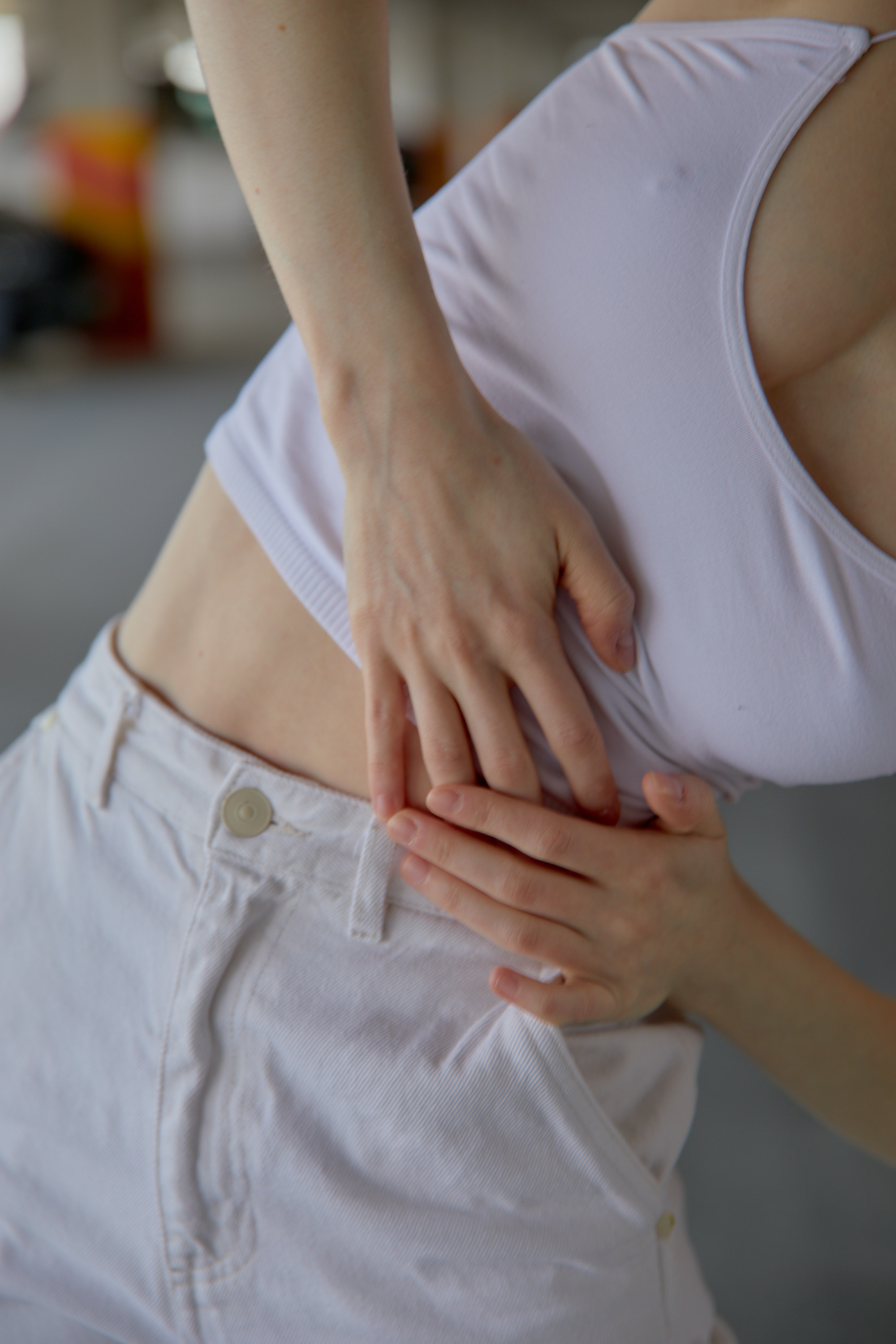
Ovulation Pain (Mittelschmerz) - Causes, Symptoms & Treatments
by Esther on July 18, 2023 , 6 min read
Ovulation, the release of an egg from the ovary, is a natural part of a woman's menstrual cycle. For some women, this process can be accompanied by discomfort known as ovulation pain or mittelschmerz. In this comprehensive guide, we will explore the causes, symptoms, and treatments of ovulation pain, empowering you with the knowledge to better understand and manage this common occurrence. Whether you're experiencing lower abdominal cramps, back pain, or other discomfort during ovulation, this article will shed light on the subject and offer guidance for finding relief.
What is Ovulation Pain?
Ovulation pain, also known as Mittelschmerz refers to the mild to moderate discomfort some women experience during ovulation. It typically occurs on one side of the lower abdomen, signaling the release of an egg from the ovary. The pain may last for a few minutes to a few hours and can vary in intensity from woman to woman.
Origin of the word Mittelschmerz
The term "Mittelschmerz" originated from the German language, where "Mittel" means "middle" and "Schmerz" means "pain." Mittelschmerz literally translates to "middle pain." The term was coined to describe the specific abdominal pain or discomfort that occurs during ovulation, typically in the middle of the menstrual cycle.
The German word accurately captures the timing and location of the pain, as it often occurs around the midpoint between two menstrual periods and is felt in the lower abdomen. Over time, the term mittelschmerz has been widely adopted in the medical and wellness community to refer to ovulation pain.
Where does Ovulation Pain (Mittelschmerz) occur?
Ovulation pain commonly occurs on one side of the lower abdomen, typically in the area of the ovary that is releasing the egg. The pain can switch sides each month or remain on the same side consistently. Occasionally, it may be felt in the lower back or radiate to other areas.
What are Ovulation Pain (Mittelschmerz) Symptoms?
The symptoms of ovulation pain vary from woman to woman. Some may experience mild twinges or cramps, while others may have sharper, more noticeable pain that could cause more discomfort. Additional symptoms can include bloating, changes in vaginal discharge from color to texture, and increased sexual desire or libido. If you find yourself facing severe or prolonged pain, make sure that it is evaluated by a doctor.

Causes of Mittelschmerz
The exact cause of ovulation pain is not fully understood, but several theories exist:
- Follicle Growth and Rupture: During the menstrual cycle, a mature egg develops in a fluid-filled sac called a follicle within the ovary. As the follicle grows, it stretches the surface of the ovary. When the egg is released during ovulation, the follicle ruptures, which can cause discomfort.
- Irritation of the Abdominal Cavity: When the follicle ruptures, it releases follicular fluid and a small amount of blood into the abdominal cavity. This release of fluid and blood can irritate the lining of the abdominal cavity, leading to pain or discomfort.
- Ovary Contraction: Another theory suggests that the pain may be due to the contraction of the ovary itself following the release of the egg. These contractions could cause temporary spasms or cramps in the surrounding tissues, resulting in pain.
Although not all women experience ovulation pain, the intensity and duration of the pain can vary from women who do undergo it.
Do Ovulation Cramps feel the same as Period Cramps?
Ovulation cramps can be similar to period cramps for some women, but they are not always the same. Ovulation pain is typically shorter in duration and milder compared to menstrual cramps. It's important to pay attention to the timing and location of the pain to differentiate between ovulation and menstrual cramps.
How to Manage Ovulation Pain?
If you experience discomfort during ovulation, there are several self-care measures you can take to manage the pain. These include applying heat to the lower abdomen, taking over-the-counter pain relievers (following the recommended dosage), practicing relaxation techniques, and maintaining a healthy lifestyle with regular exercise and a balanced diet.

Treatment for Ovulation Pain (Mittelschmerz)
For women who require additional relief, healthcare providers may suggest hormonal birth control methods, such as combined oral contraceptives or progestin-only pills, to suppress ovulation and reduce ovulation pain. It's important to consult with a healthcare professional to discuss the most suitable treatment options based on your specific needs.
When should I see a doctor about ovulation pain?
Most cases of ovulation pain can be managed with self-care measures. However, it is advisable to consult a healthcare provider if the pain is severe, persistent, or accompanied by other concerning symptoms. Additionally, if you are actively trying to conceive and experiencing difficulties or have concerns about your fertility, it is recommended to seek medical guidance. A healthcare professional can evaluate your symptoms, perform necessary tests, and provide appropriate advice and support.
Conclusion
Ovulation pain, or Mittelschmerz, is a common occurrence for many women, and understanding its causes, symptoms, and available treatments can provide valuable insights for managing this discomfort. By recognizing the signs and being aware of the unique characteristics of ovulation pain, individuals can navigate their menstrual cycles with greater ease and confidence.
If you experience ovulation pain, remember that it is often a normal part of the reproductive process. Self-care measures such as applying heat to the lower abdomen, practicing relaxation techniques, and maintaining a healthy lifestyle can help alleviate discomfort.
It's worth noting that some individuals may find similarities between ovulation pain and menstrual pain. If you experience menstrual pain, medications specifically designed for period pain relief may be available and can be discussed with your doctor. It's important to listen to your body, track your symptoms, and seek medical advice if you have concerns or experience severe or persistent pain.